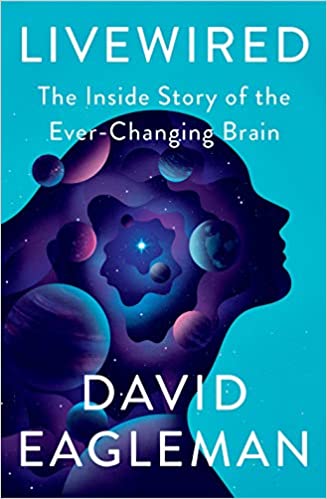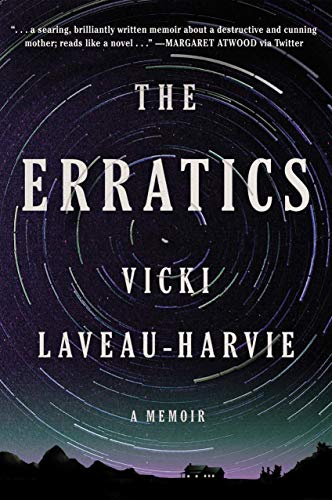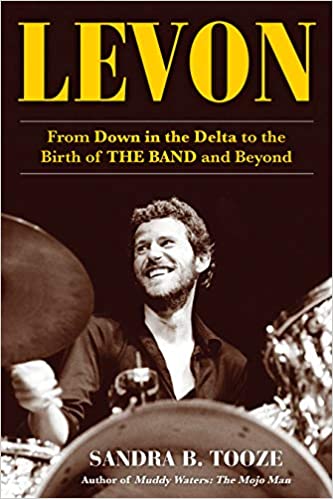
HIS TRUTH IS MARCHING ON
by Jon Meacham
An intimate and revealing portrait of civil rights icon and longtime U.S. congressman John Lewis, linking his life to the painful quest for justice in America from the 1950s to the present—from the Pulitzer Prize–winning author of The Soul of America
John Lewis, who at age twenty-five marched in Selma, Alabama, and was beaten on the Edmund Pettus Bridge, was a visionary and a man of faith. Drawing on decades of wide-ranging interviews with Lewis, Jon Meacham writes of how this great-grandson of a slave and son of an Alabama tenant farmer was inspired by the Bible and his teachers in nonviolence, Reverend James Lawson and Martin Luther King, Jr., to put his life on the line in the service of what Abraham Lincoln called “the better angels of our nature.” From an early age, Lewis learned that nonviolence was not only a tactic but a philosophy, a biblical imperative, and a transforming reality. At the age of four, Lewis, ambitious to become a minister, practiced by preaching to his family’s chickens. When his mother cooked one of the chickens, the boy refused to eat it—his first act, he wryly recalled, of nonviolent protest. Integral to Lewis’s commitment to bettering the nation was his faith in humanity and in God—and an unshakable belief in the power of hope.
Meacham calls Lewis “as important to the founding of a modern and multiethnic twentieth- and twenty-first-century America as Thomas Jefferson and James Madison and Samuel Adams were to the initial creation of the Republic itself in the eighteenth century.” A believer in the injunction that one should love one’s neighbor as oneself, Lewis was arguably a saint in our time, risking limb and life to bear witness for the powerless in the face of the powerful. In many ways he brought a still-evolving nation closer to realizing its ideals, and his story offers inspiration and illumination for Americans today who are working for social and political change.

GHOST FLAMES
by Charles J. Hanley
A powerful, character-driven narrative of the Korean War from the Pulitzer Prize-winning writer who helped uncover some of its longest-held and darkest secrets
The war that broke out in Korea on a Sunday morning 70 years ago has come to be recognized as a critical turning point in modern history, as the first great clash of arms of the Cold War, the last conflict between superpowers, and the root of a nuclear crisis that grips the world to this day.
In this vivid, emotionally compelling and highly original account, Charles J. Hanley tells the story of the Korean War through the eyes of 20 individuals who lived through it–from a North Korean refugee girl to an American nun, a Chinese general to a black American prisoner of war, a British journalist to a US Marine hero.
This is an intimate, deeper kind of history, whose meticulous research and rich detail, drawing on recently unearthed materials and eyewitness accounts, brings the true face of the Korean War, the vastness of its human tragedy, into a sharper focus than ever before. The “Forgotten War” becomes unforgettable.
In decades as an international journalist, Hanley reported from some 100 countries and covered more than a half-dozen conflicts, from Vietnam to Afghanistan and Iraq.

LIVEWIRED: THE INSIDE STORY OF THE EVER-CHANGING BRAIN
by David Eagleman
What does drug withdrawal have in common with a broken heart? Why is the enemy of memory not time but other memories? How can a blind person learn to see with her tongue, or a deaf person learn to hear with his skin? Why did many people in the 1980s mistakenly perceive book pages to be slightly red in color? Why is the world’s best archer armless? Might we someday control a robot with our thoughts, just as we do our fingers and toes? Why do we dream at night, and what does that have to do with the rotation of the Earth?
The answers to these questions are right behind our eyes. The greatest technology we have ever discovered on our planet is the three-pound organ carried in the vault of the skull. This book is not simply about what the brain is; it is about what it does. The magic of the brain is not found in the parts it’s made of but in the way those parts unceasingly reweave themselves in an electric, living fabric. In Livewired, you will surf the leading edge of neuroscience atop the anecdotes and metaphors that have made David Eagleman one of the best scientific translators of our generation. Covering decades of research to the present day, Livewired also presents new discoveries from Eagleman’s own laboratory, from synesthesia to dreaming to wearable neurotech devices that revolutionize how we think about the senses.

THE ERRATICS: A MEMOIR
by Vicki Laveau-Harvie
“…a searing, brilliantly-written memoir about a destructive and cunning mother; reads like a novel…” –Margaret Atwood via Twitter
In this award-winning memoir, two sisters reckon with the decline and death of their outlandishly tyrannical mother and with the care of their psychologically terrorized father, all relayed with dark humor and brutal honesty.
When her elderly mother is hospitalized unexpectedly, Vicki Laveau-Harvie and her sister travel to their parents’ ranch home in Alberta, Canada, to help their father. Estranged from their parents for many years, they are horrified by what they discover on their arrival. For years their mother has camouflaged her manic delusions and savage unpredictability, and over the decades she has managed to shut herself and her husband away from the outside world, systematically starving him and making him a virtual prisoner in his own home.
Rearranging their lives to be the daughters they were never allowed to be, the sisters focus their efforts on helping their father cope with the unending manipulations of their mother and encounter all the pressures that come with caring for elderly parents. And at every step they have to contend with their mother, whose favorite phrase during their childhood was: “I’ll get you and you won’t even know I’m doing it.”

VESPER FLIGHTS
by Helen Macdonald
Animals don’t exist in order to teach us things, but that is what they have always done, and most of what they teach us is what we think we know about ourselves.
In Vesper Flights Helen Macdonald brings together a collection of her best loved essays, along with new pieces on topics ranging from nostalgia for a vanishing countryside to the tribulations of farming ostriches to her own private vespers while trying to fall asleep.
Meditating on notions of captivity and freedom, immigration and flight, Helen invites us into her most intimate experiences: observing the massive migration of songbirds from the top of the Empire State Building, watching tens of thousands of cranes in Hungary, seeking the last golden orioles in Suffolk’s poplar forests. She writes with heart-tugging clarity about wild boar, swifts, mushroom hunting, migraines, the strangeness of birds’ nests, and the unexpected guidance and comfort we find when watching wildlife.
By one of this century’s most important and insightful nature writers, Vesper Flights is a captivating and foundational book about observation, fascination, time, memory, love and loss and how we make sense of the world around us.

THE SOCRATES EXPRESS
by Eric Weiner
The New York Times bestselling author of The Geography of Bliss embarks on a rollicking intellectual journey, following in the footsteps of history’s greatest thinkers and showing us how each—from Epicurus to Gandhi, Thoreau to Beauvoir—offers practical and spiritual lessons for today’s unsettled times.
We turn to philosophy for the same reasons we travel: to see the world from a different perspective, to unearth hidden beauty, and to find new ways of being. We want to learn how to embrace wonder. Face regrets. Sustain hope.
Eric Weiner combines his twin passions for philosophy and global travel in a pilgrimage that uncovers surprising life lessons from great thinkers around the world, from Rousseau to Nietzsche, Confucius to Simone Weil. Traveling by train (the most thoughtful mode of transport), he journeys thousands of miles, making stops in Athens, Delhi, Wyoming, Coney Island, Frankfurt, and points in between to reconnect with philosophy’s original purpose: teaching us how to lead wiser, more meaningful lives. From Socrates and ancient Athens to Simone de Beauvoir and twentieth-century Paris, Weiner’s chosen philosophers and places provide important signposts as we navigate today’s chaotic times.
In The Socrates Express, Weiner invites us to voyage alongside him on his life-changing pursuit of wisdom and discovery as he attempts to find answers to our most vital questions.

LEVON
by Sandra B. Tooze
A dazzling, epic biography of Levon Helm––the beloved, legendary drummer and singer of the Band.
He sang the anthems of a generation: “The Weight,” “Up on Cripple Creek,” and “Life Is a Carnival.” Levon Helm’s story––told here through sweeping research and interviews with close friends and fellow musicians––is the rollicking story of American popular music itself.
In the Arkansas Delta, a young Levon witnessed “blues, country, and gospel hit in a head-on collision,” as he put it. The result was rock ‘n’ roll. As a teenager, he joined the raucous Ronnie Hawkins and the Hawks, then helped merge a hard-driving electric sound with Bob Dylan’s folk roots, and revolutionized American rock with the Band. Helm not only provided perfect “in the pocket” rhythm and unforgettable vocals, he was the Band’s soul.
Levon traces a rebellious life on the road, from being booed with Bob Dylan to the creative cauldron of Big Pink, the Woodstock Festival, world tours, The Last Waltz, and beyond with the man Dylan called “one of the last true great spirits of my or any other generation.”
Author Sandra B. Tooze digs deep into what Helm saw as a devastating betrayal by his closest friend, Band guitarist Robbie Robertson––and Levon’s career collapse, his near bankruptcy, and the loss of his voice due to throat cancer in 1997. Yet Helm found success in an acting career that included roles in Coal Miner’s Daughter and The Right Stuff. Regaining his singing voice, he made his last decade a triumph, opening his barn to the Midnight Rambles and earning three Grammys. Cancer finally claimed his life in 2012.
Levon is a penetrating, skillfully told tale of a music legend from Southern cotton fields to global limelight.
Still Hot in Non-Fiction & Biography

EVIL GENIUSES
by Kurt Anderson
NEW YORK TIMES BESTSELLER • When did America give up on fairness? The bestselling author of Fantasyland tells the epic history of how America decided that big business gets whatever it wants, only the rich get richer, and nothing should ever change—and charts a way back to the future.
“The one book everyone must read as we figure out how to rebuild our country.”—Walter Isaacson, author of Steve Jobs and Leonardo da Vinci
During the twentieth century, America managed to make its economic and social systems both more and more fair and more and more prosperous. A huge, secure, and contented middle class emerged. All boats rose together. But then the New Deal gave way to the Raw Deal. Beginning in the early 1970s, by means of a long war conceived of and executed by a confederacy of big business CEOs, the superrich, and right-wing zealots, the rules and norms that made the American middle class possible were undermined and dismantled. The clock was turned back on a century of economic progress, making greed good, workers powerless, and the market all-powerful while weaponizing nostalgia, lifting up an oligarchy that served only its own interests, and leaving the huge majority of Americans with dwindling economic prospects and hope.
Why and how did America take such a wrong turn? In this deeply researched and brilliantly woven cultural, economic, and political chronicle, Kurt Andersen offers a fresh, provocative, and eye-opening history of America’s undoing, naming names, showing receipts, and unsparingly assigning blame—to the radical right in economics and the law, the high priests of high finance, a complacent and complicit Establishment, and liberal “useful idiots,” among whom he includes himself.
Only a writer with Andersen’s crackling energy, deep insight, and ability to connect disparate dots and see complex systems with clarity could make such a book both intellectually formidable and vastly entertaining. And only a writer of Andersen’s vision could reckon with our current high-stakes inflection point, and show the way out of this man-made disaster.

BREATH
by James Nestor
AN INSTANT NEW YORK TIMES BESTSELLER
No matter what you eat, how much you exercise, how skinny or young or wise you are, none of it matters if you’re not breathing properly.
There is nothing more essential to our health and well-being than breathing: take air in, let it out, repeat 25,000 times a day. Yet, as a species, humans have lost the ability to breathe correctly, with grave consequences.
Journalist James Nestor travels the world to figure out what went wrong and how to fix it. The answers aren’t found in pulmonology labs, as we might expect, but in the muddy digs of ancient burial sites, secret Soviet facilities, New Jersey choir schools, and the smoggy streets of São Paulo. Nestor tracks down men and women exploring the hidden science behind ancient breathing practices like Pranayama, Sudarshan Kriya, and Tummo and teams up with pulmonary tinkerers to scientifically test long-held beliefs about how we breathe.
Modern research is showing us that making even slight adjustments to the way we inhale and exhale can jump-start athletic performance; rejuvenate internal organs; halt snoring, asthma, and autoimmune disease; and even straighten scoliotic spines. None of this should be possible, and yet it is.
Drawing on thousands of years of medical texts and recent cutting-edge studies in pulmonology, psychology, biochemistry, and human physiology, Breath turns the conventional wisdom of what we thought we knew about our most basic biological function on its head. You will never breathe the same again.
